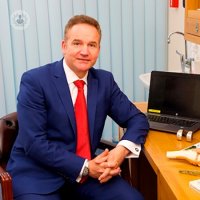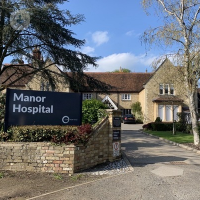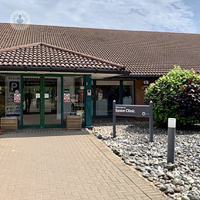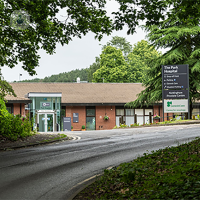What is a joint replacement?
Joint replacement refers to one of a number of surgical procedures in which damaged or diseased parts of a joint are removed and artificial replacements are fitted. Joint replacement surgery can be performed on a number of joints in the body, most commonly the hip and knee, but joints in the shoulders, elbows, fingers, and ankles can also be replaced.

Why would you have a joint replacement?
Joint replacement surgery may be necessary if one of the patient’s joints has become damaged due to arthritis, disease, or simply wear and tear from age, and this damage is causing the patient pain and affecting their quality of life. The doctor will probably suggest more conservative treatments, such as physical therapy or medications, before recommending surgery.
Joint replacements can help to relieve pain and help the joint to regain some of its function, facilitating movement. However, the surface of the replacement can also wear away with time, and after 15-20 years another replacement may be necessary.
What does joint replacement involve?
The surgery is performed in a hospital or outpatient centre. The patient is anaesthetised so that they can’t feel pain during the operation. The surgeon will then remove damaged bone and cartilage from the joint and replace them with prosthetic parts, which may be made from metal, plastic, or ceramic.
How should I prepare for a joint replacement?
In the weeks before the surgery, your doctor will run a series of tests, such as blood tests and a cardiogram to check your general health and plan the surgery. Your doctor will advise you on any preparation you will need to do for your particular operation. For many joint replacements, recovery can be a long process and may make movement difficult for a while – especially hip and knee replacements. For this reason, it is a good idea to plan ahead and make sure you have help and any assistive items, such as handrails or a shower bench after the surgery.
What is recovery from a joint replacement like?
Each patient and each operation is different, but in the vast majority of cases, physical rehabilitation is needed to aid recovery. Your doctor will usually advise you to start using the new joint soon after the surgery is complete, which should help to get your body used to it and speed up the recovery process.
There is often some pain afterwards, which can last for a few months, as the tissues heal and the muscles become strong again. Exercise can be challenging, but it is crucial to recovery, and your doctor will advise you on how to exercise the muscles around the joint. In the long term, joint replacement generally improves motion, reduces the pain felt previously, and improves the patient’s quality of life.
05-04-2018 07-27-2023Joint replacement
Mr Raj Kumar - Orthopaedic surgery
Created on: 05-04-2018
Updated on: 07-27-2023
Edited by: Conor Lynch
What is a joint replacement?
Joint replacement refers to one of a number of surgical procedures in which damaged or diseased parts of a joint are removed and artificial replacements are fitted. Joint replacement surgery can be performed on a number of joints in the body, most commonly the hip and knee, but joints in the shoulders, elbows, fingers, and ankles can also be replaced.

Why would you have a joint replacement?
Joint replacement surgery may be necessary if one of the patient’s joints has become damaged due to arthritis, disease, or simply wear and tear from age, and this damage is causing the patient pain and affecting their quality of life. The doctor will probably suggest more conservative treatments, such as physical therapy or medications, before recommending surgery.
Joint replacements can help to relieve pain and help the joint to regain some of its function, facilitating movement. However, the surface of the replacement can also wear away with time, and after 15-20 years another replacement may be necessary.
What does joint replacement involve?
The surgery is performed in a hospital or outpatient centre. The patient is anaesthetised so that they can’t feel pain during the operation. The surgeon will then remove damaged bone and cartilage from the joint and replace them with prosthetic parts, which may be made from metal, plastic, or ceramic.
How should I prepare for a joint replacement?
In the weeks before the surgery, your doctor will run a series of tests, such as blood tests and a cardiogram to check your general health and plan the surgery. Your doctor will advise you on any preparation you will need to do for your particular operation. For many joint replacements, recovery can be a long process and may make movement difficult for a while – especially hip and knee replacements. For this reason, it is a good idea to plan ahead and make sure you have help and any assistive items, such as handrails or a shower bench after the surgery.
What is recovery from a joint replacement like?
Each patient and each operation is different, but in the vast majority of cases, physical rehabilitation is needed to aid recovery. Your doctor will usually advise you to start using the new joint soon after the surgery is complete, which should help to get your body used to it and speed up the recovery process.
There is often some pain afterwards, which can last for a few months, as the tissues heal and the muscles become strong again. Exercise can be challenging, but it is crucial to recovery, and your doctor will advise you on how to exercise the muscles around the joint. In the long term, joint replacement generally improves motion, reduces the pain felt previously, and improves the patient’s quality of life.


How to manage pain after joint replacement surgery
By Mr Fahad Gulam Attar
2024-12-15
The goal of knee replacement surgery is for you to be able to live a pain-free life. After the operation, it's important to work alongside a medical team including an anaesthetist so that you have good pain control and can return back to your daily activities. Expert orthopaedic surgeon Mr Fahad Gulam Attar explains how this is achieved. See more


Why do people need hip replacement surgery?
By Mr Pramod Achan
2024-12-15
Hip replacement surgery is on the rise. More and more people are going under the knife to replace a damaged hip to improve their range of motion and overall quality of life. But why do people get hip replacements and can more conservative treatments be an alternative? Mr Pramod Achan explains. See more


What to expect from ankle joint replacement surgery and recovery
By Mr Hisham Shalaby
2024-12-14
Revered consultant orthopaedic surgeon Mr Hisham Shalaby gives an informative guide to ankle joint replacement surgery for patients, including how the surgery is performed and what is involved in recovery. See more


All about temporomandibular joint replacement (TMJ)
By Professor Andrew Sidebottom
2024-12-14
There’s a variety of reasons why TMJ replacement surgery is required. Temporomandibular joint treatment to replace the jaw can take place due to an accident or jaw bone removal due to tumours, bone infection or arthritis. Highly-experienced and respected oral and maxillofacial surgeon Professor Andrew Sidebottom speaks to Top Doctors about what’s involved in the TMJ replacement procedure for patients who are due to have this operation. See more
Experts in Joint replacement
-
Mr Matt Dawson
Orthopaedic surgeryExpert in:
- Joint preservation surgery
- Osteotomy
- Joint replacement
- Partial knee replacement
- Knee arthroscopy
- ACL reconstruction
-
Mr Sunil Kumar
Orthopaedic surgeryExpert in:
- Knee surgery
- Knee replacement
- Knee arthroscopy
- Osteoarthritis
- Joint replacement
- Sports injuries
-
Mr Raghbir Khakha
Orthopaedic surgeryExpert in:
- Sports injuries
- Joint preservation surgery
- Joint replacement
- Knee
- Paediatric orthopaedics
- Osteotomy
-
Mr Joby George Malal
Orthopaedic surgeryExpert in:
- Shoulder surgery
- Elbow Pain
- Hand injury
- Wrist fracture
- Joint replacement
- Traumatic injury
-
Mr Arvind Mohan
Orthopaedic surgeryExpert in:
- Shoulder replacement
- Rotator cuff injury
- Epicondylitis (tennis elbow)
- Hand surgery
- Joint replacement
- Sports injuries
- See all

The Manor Hospital - part of Circle Health Group
The Manor Hospital - part of Circle Health Group
Church End, Biddenham, Bedford MK40 4AW
No existe teléfono en el centro.
By using the telephone number provided by TOP DOCTORS, you automatically agree to let us use your phone number for statistical and commercial purposes. For further information, read our Privacy Policy
Top Doctors

The Saxon Clinic - part of Circle Health Group
The Saxon Clinic - part of Circle Health Group
V7 Saxon St, Coffee Hall, Milton Keynes MK6 5LR
No existe teléfono en el centro.
By using the telephone number provided by TOP DOCTORS, you automatically agree to let us use your phone number for statistical and commercial purposes. For further information, read our Privacy Policy
Top Doctors

The Park Hospital - part of Circle Health Group
The Park Hospital - part of Circle Health Group
Sherwood Lodge Drive, Burntstump Country Park, Arnold, Nottinghamshire NG5 8RX
No existe teléfono en el centro.
By using the telephone number provided by TOP DOCTORS, you automatically agree to let us use your phone number for statistical and commercial purposes. For further information, read our Privacy Policy
Top Doctors
-
The Manor Hospital - part of Circle Health Group
Church End, Biddenham, Bedford MK40 4AW, BedfordExpert in:
- General Surgery
- Orthopaedic surgery
- Physiotherapy
- Obstetrics and Gynaecology
- General practice
- Urology
-
The Saxon Clinic - part of Circle Health Group
V7 Saxon St, Coffee Hall, Milton Keynes MK6 5LR, Milton KeynesExpert in:
- General Surgery
- Orthopaedic surgery
- Gastroenterology
- Obstetrics and Gynaecology
- Paediatrics
- Urology
-
The Park Hospital - part of Circle Health Group
Sherwood Lodge Drive, Burntstump Country Park, Arnold, Nottinghamshire NG5 8RX, ArnoldExpert in:
- General Surgery
- Maxillofacial Surgery
- Oral surgery
- Plastic surgery, reconstructive and aesthetics
- Obstetrics and Gynaecology
- Podiatry
- See all
- Most viewed diseases, medical tests, and treatments
- Ulnar nerve entrapment
- Peripheral nerve block
- Peripheral neuropathy
- Facial feminisation surgery
- Migraine
- Joint pain
- Lumbar herniated disc
- Spinal surgery
- Minimal access surgery (keyhole surgery)
- Head and neck cancer








